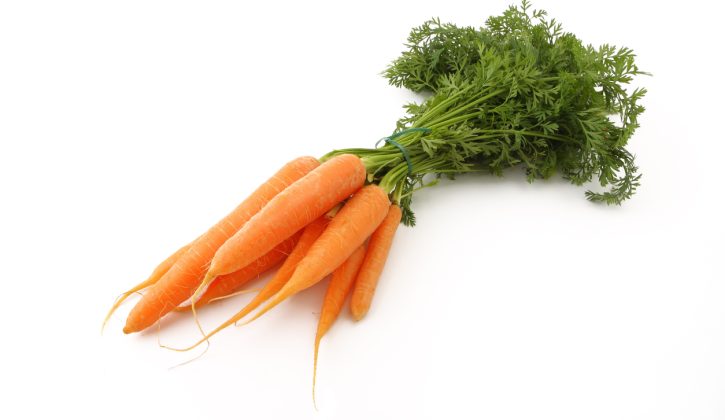Despite years of mums and dads telling us that they know best, it appears that not everything they drilled into us as kids was totally accurate. These food myths are just a few old wives’ tales we were fed growing up that totally (or partially) missed the mark.
5 Food Myths Debunked:
Food Myth #1 – The 5-Second Rule
We’ve all done it. In the delirium and excitement that surrounds the arrival of a meal or the ping of the microwave, we have been known to develop butter fingers at the crucial moment. Until now, we have always counted to five, dusted off our dinner, and continued right where we left off. But an article suggested that the five-second food rule may not be based entirely on scientific fact (shocking, I know).
A study suggested that while most of us would be unharmed by eating food off of the floor, there are a few terms and conditions. The very young or old should steer clear in case immune systems cannot fight off even small bacteria. A dirty floor negates the rule entirely, because—ew.
And lastly, if you are really hungry and just not ready to say goodbye to your grub, make sure it’s a carpet, where less germs seem to hang around.
Food Myth #2 – Wait an hour after eating to swim
As a child on summer holidays, I swiftly learnt just how painfully slowly an hour could pass. Between hopping on the spot and asking with each passing minute if I could go back in the pool yet, it seemed interminable at the time and even now I couldn’t tell you the reason I was delayed. This is one of the most popular food myths out there – presumably my parents were concerned that I might get sick swimming on a full stomach, but being as I was, the fussiest child in existence, it was hardly likely that a few choice nibbles of lunch was going to cause that to occur.
Yes, we could develop a stomach cramp and yes, digestion will move blood toward the gut and away from muscles like arms and legs, but with no known fatalities of this nature having ever been recorded, it seems unlikely that it could cause any real damage at any well-attended pool.
Food Myth #3 – Chewing gum stays in your system for seven years
Putting aside the legend of chewing gum wrapping itself around your heart and killing you, that some of my more macabre classmates liked to tout, one of the most widely renowned food myths is that the sticky stuff can take seven years (or longer depending on which old wife you’re speaking with) to digest. Cue hard lump in throat and lifelong angst whenever I have swallowed gum.
But luckily for us, there is no scientific grounding behind this one, meaning we needn’t lose any sleep over a badly timed gulp whilst chewing. Gastroenterologist, David Milov, totally discredited the theory, saying to Scientific American: ‘”On occasion we’ll see a piece of swallowed gum, but usually it’s not something that’s any more than a week old.”
Food Myth #4 – Cheese gives you nightmares
As a cheese fanatic, there are no amount of naked boardroom meetings, missed exams or The Day After Tomorrow-style dream scenarios that could ever make me put down the brie and crackers. However, there is something to be said for the link that is believed to exist between loopy dreams and the dairy delicacy, with many claiming to have had exceedingly lucid dreams after overindulging in cheese before bedtime. A study by The British Cheese Board tried to lay to rest this, one of the oldest food myths, and their results not only put paid to the notion but even suggested that sweet dreams are made of cheese.
Tryptophan, one of the amino acids in cheese, has been shown to reduce stress and aid sleep. The majority of the volunteers participating experienced good sleep, remembered their dreams and none recorded experiencing any nightmares. Weirdest of all, the types of cheese actually seemed to affect the kind of dreams they had, with Stilton eliciting the strangest, Red Leicester helping subjects to revisit school days, and others celebrity spotting whilst under the influence of Cheddar.
Food Myth #5 – Carrots help you see in the dark
This myth has it roots back in World War II when Britain tried to prevent Germany from finding out that they were using radar to intercept bombers on night raids. Press releases stated that pilots were eating lots of the orange vegetables to give them exceptional vision, pulling the wool over our eyes right up to present day. Although it is true that carrots contain vitamin A and a lack of it can cause night blindness, even if we ate them at the rate of Bugs Bunny, we would never be able to see in complete darkness.
We suspect that mothers, keen to encourage their kids to eat vegetables, may have perpetuated this old wives’ tale. Sorry kids, no amount of carrots is going to help you read comics under the duvet once the lights go out.
Tagged under: old wives' tales,food myths
Category: recipegeek,food



